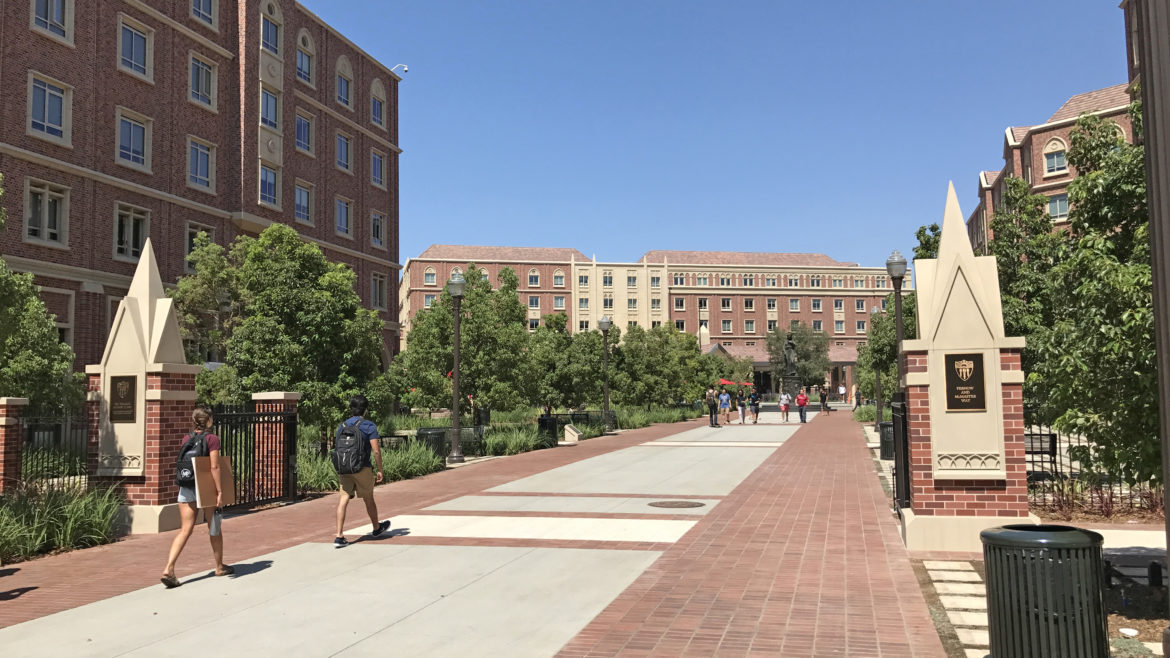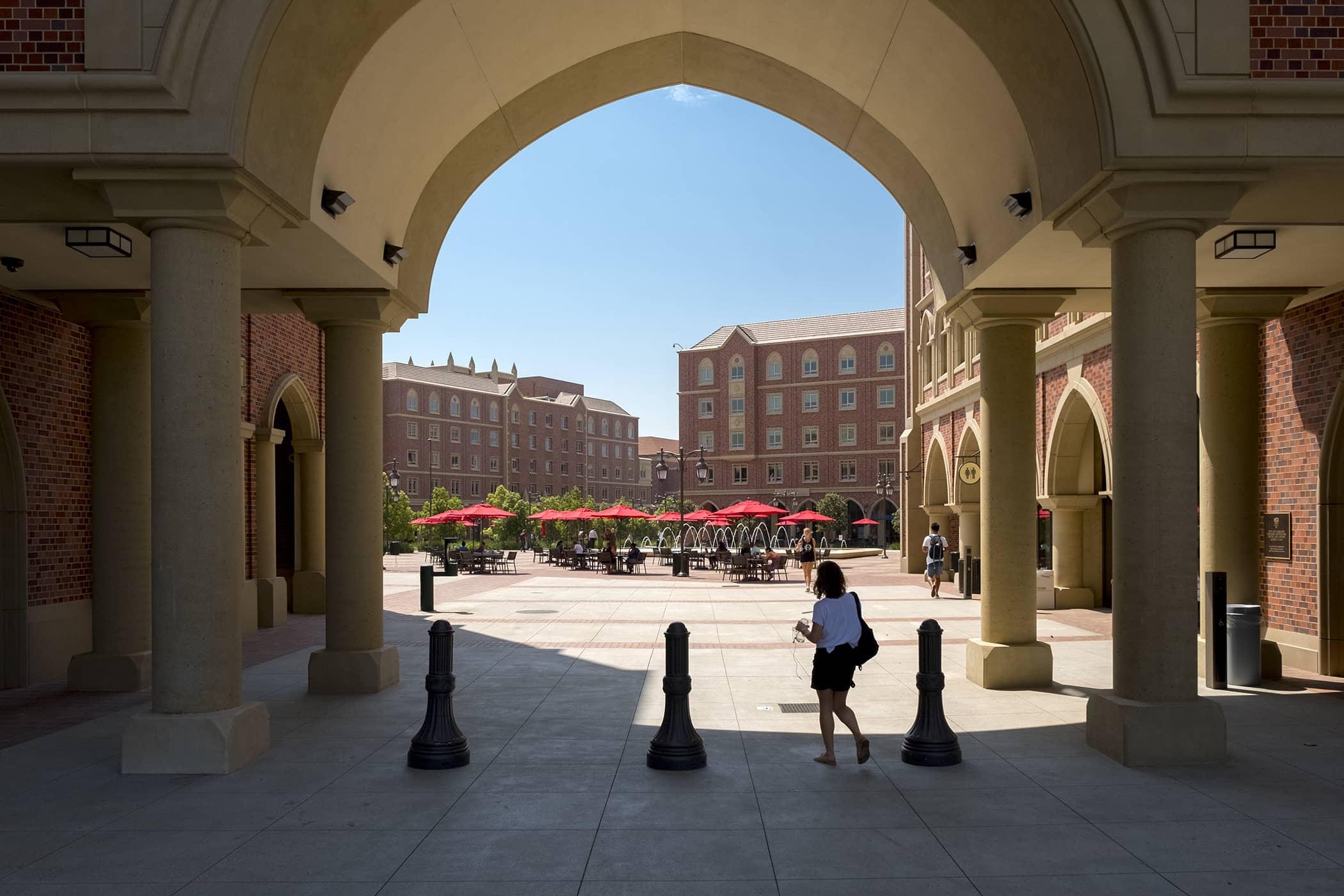There's a quiet but powerful movement growing, one that's helping people talk more openly about their thoughts and feelings. It's called the USC Mind Challenge, and it's making a real difference, especially for students at the University of South Carolina. This effort, you know, aims to change how we all look at mental well-being, encouraging everyone to share what’s on their mind without feeling any shame.
This initiative, which is, like, a fresh take on a familiar viral idea, has really taken off on social media. It's bringing a lot of attention to something that often gets pushed aside: how we support each other's emotional health. The whole idea is to get people comfortable speaking up, building a community where it's okay to not be okay, and that's pretty important, don't you think?
The spirit of the USC Mind Challenge is all about connection and care. It’s a way for people to show they stand with others, offering support and a sense of belonging. This kind of shared experience, in a way, helps lessen the burden many carry in silence, paving the path for more supportive environments everywhere.
Table of Contents
- The People Behind the USC Mind Challenge
- What Exactly is the USC Mind Challenge?
- How Did the USC Mind Challenge Get Started?
- Why Does the USC Mind Challenge Matter?
- The University of South Carolina - A Place of Purpose
- USC Academics and Student Life - Beyond the USC Mind Challenge
- USC Athletics - A Proud Tradition
- The Future of the USC Mind Challenge
The People Behind the USC Mind Challenge
At the heart of the USC Mind Challenge is a student who saw a need and decided to act. Wade Jefferson, a junior at USC, really started something special. He founded the Mind Club, which, you know, is the group behind this whole effort. Wade's own experiences, having lost two friends to suicide, deeply shaped his desire to create a space where conversations about mental well-being could happen more freely and easily. It's a very personal reason, actually, that drives this important work.
His vision for the Mind Club, and for this challenge, was clear: to make talking about mental health a regular part of everyday life. He wanted to help people feel less alone and more understood. This kind of leadership, born from personal experience, often has the greatest impact, doesn't it? It's about turning personal pain into public good, which is quite inspiring.
Wade Jefferson - A Closer Look
| Role | Founder, USC Mind Club |
| University Status | USC Junior |
| Motivation | Personal loss of two friends to suicide; desire to normalize mental health conversations. |
| Key Contribution | Launched the 'USC Speak Your Mind Challenge' to raise awareness and destigmatize mental health discussions. |
The Mind Club itself, or the Mental Illness Needs Discussion Club, as it's sometimes called, works to break down barriers. They want to build a stronger sense of community and help people feel comfortable discussing their emotional health. It's about creating a culture where mental well-being is something people value and talk about openly, which is, well, pretty crucial for everyone.
What Exactly is the USC Mind Challenge?
The USC Mind Challenge is a fresh take on the well-known ice bucket challenge, but with a new, very important purpose. Instead of just dumping ice water for a laugh, this version is all about getting people to speak up about mental health. It encourages folks to take part, share their experience online, and then ask others to join in too. It's a simple idea, really, but it carries a powerful message.
The core of the challenge involves people getting splashed with ice water, filming it, and then posting their video. The key element, though, is the nomination part. Participants then tag friends, inviting them to continue the chain. This method, you know, helps spread the word quickly and widely, making it a very effective tool for awareness.
It's gained quite a bit of traction, especially on platforms like TikTok, where short, engaging videos can really take off. The idea is that by participating, people are not only raising money but also, more importantly, helping to make conversations about emotional well-being something that's just part of daily life. This kind of shared action, you know, can make a big difference in how people view these topics.
How Does the USC Mind Challenge Work?
The process for the USC Mind Challenge is fairly straightforward, aiming for maximum participation and visibility:
- Participate: Someone gets splashed with ice water, often filmed for social media.
- Post: The video is then shared on platforms like TikTok, usually with the hashtag #speakyourmind.
- Nominate: The person in the video then challenges others, typically friends or family, to do the same.
This simple structure, you see, helps the challenge spread organically, reaching a lot of people in a short amount of time. It's a creative way to use social media for a good cause, bringing a serious topic into everyday conversations.
How Did the USC Mind Challenge Get Started?
The USC Speak Your Mind Challenge, as it's officially known, began on March 31, 2025. It was launched by the Mind Club at the University of South Carolina. The founder, Wade Jefferson, was the first to kick it off, setting the tone for what would become a very popular movement. It’s pretty amazing, actually, how quickly it caught on from that initial spark.
The inspiration for this new challenge came directly from the original ice bucket challenge from 2014, which, you know, was a huge success for ALS awareness. The Mind Club saw how effective that format was for getting people involved and decided to adapt it for mental health awareness. It's a clever way to revive a proven concept for a new, important cause.
From its humble beginnings, the challenge really took off, becoming a viral hit among students and beyond. It even made its way to other schools, like Christ School, showing just how far a simple idea can travel when it connects with people. The way it spread, you know, really shows how ready people are to talk about these things if given the chance.
What Was the Inspiration for the USC Mind Challenge?
The main inspiration was the original 2014 Ice Bucket Challenge. That campaign showed how a simple, fun, and shareable activity could raise a lot of awareness and funds for a serious issue. The Mind Club wanted to replicate that success for mental health, which, in some respects, is just as important a cause.
Why Does the USC Mind Challenge Matter?
The USC Mind Challenge matters a great deal because it's working to change how we all think and talk about mental well-being. For too long, conversations about emotional health have been kept quiet, often surrounded by feelings of shame or embarrassment. This challenge, you know, is directly confronting that, trying to make it normal and easy for people to discuss their feelings and seek help if they need it.
One of the main goals is to break down the stigma associated with mental health struggles. By encouraging people to participate and share, it shows that these are common human experiences, not something to hide. This shift in public perception is, well, incredibly important for creating a more supportive and understanding community. It helps people feel less alone, which is a big deal.
While the challenge does aim to raise money, its biggest impact might be in sparking those much-needed discussions. It represents a cultural shift, especially among younger generations, towards openness about emotional readiness. This kind of movement, you see, helps build a world where asking for help is seen as a sign of strength, not weakness. That's a powerful change, really.
How Does the USC Mind Challenge Affect Students?
For students, the USC Mind Challenge offers a way to connect with peers on a deeper level. It provides a platform to explore emotional readiness and join a larger conversation. When students see their friends and classmates taking part, it can make them feel more comfortable opening up about their own experiences. This kind of shared vulnerability, you know, builds stronger bonds and a more caring campus environment.
The University of South Carolina - A Place of Purpose
The University of South Carolina, the home of the Mind Club and this important challenge, is a place where people really try to tackle society's most pressing issues. It's a collection of different schools, centers, and institutes where some of the brightest minds come together. They work in a lively and supportive setting, which, you know, helps them do amazing things. This collaborative spirit is pretty central to everything that happens there.
The university is a big place, but it feels like a close-knit community, with more than 21,000 students finding their way. They offer over 150 different majors, so there's truly something for everyone, whether you're just starting out or looking to continue your studies. It's a place where you can explore your interests and find your own path to success, which is, well, what a good university should offer.
Students at USC get a lot of help along the way, with dedicated support systems ready to assist them. This kind of care, you see, helps students not only with their academic programs but also with their overall well-being. It’s a place that seems to genuinely care about its people, which is probably why something like the Mind Club can thrive there.
USC Academics and Student Life - Beyond the USC Mind Challenge
Beyond the fantastic work of the Mind Club, the University of South Carolina offers a lot to its students. It's a place where you can truly discover what you want to do with your life, with a huge range of academic choices. There are undergraduate degrees, graduate programs, and even online courses, so, in some respects, there's a learning option for nearly everyone. It's all about helping students find the right fit for their aspirations.
The application process is set up to help prospective students explore all these possibilities. They want to make sure you find a program that suits your goals. And once you're there, whether you're a first-year student or transferring from another school, you'll find a community ready to welcome you. USC accepts transfer students from all over, showing its broad appeal.
The university is also home to a very large graduate student community, with more than 26,000 people working on advanced degrees. These students are preparing for important leadership roles in research, education, and various professional fields. It’s a place where serious learning happens, and that, you know, is something to be proud of.
What Makes USC a Good Place to Learn?
USC stands out because it combines strong academic offerings with a very supportive environment. The university provides a vast array of programs and majors, allowing students to pursue nearly any interest. This wide selection, coupled with a focus on collaborative learning and dedicated student support, creates a setting where individuals can truly grow and succeed. It's a place where people are encouraged to think big, which is pretty cool.
USC Athletics - A Proud Tradition
While the USC Mind Challenge is making waves for mental well-being, the university also has a very strong and proud history in sports. The USC Trojans are well-known, and their athletic achievements are quite visible. You can see many of their trophies and other sports honors displayed in Heritage Hall, which, you know, really shows off their long tradition of success.
The university's commitment to sports is clear, and it extends to bringing in top talent. The USC Trojans, for example, have recently put together what's considered the number one recruiting class for the 2026 cycle, according to 247Sports rankings. With 30 commits, Coach Lincoln Riley is really building something special there. This kind of dedication to excellence, you see, runs through all parts of the university.
This strong athletic presence, too, creates a vibrant campus atmosphere. It brings students and fans together, fostering a sense of pride and shared excitement. It's another way the university builds community, adding to the many reasons people feel connected to USC.
The Future of the USC Mind Challenge
With the USC Speak Your Mind Challenge having gone viral and gained so much attention, the Mind Club isn't resting. They're already looking ahead to what's next. The group is planning a "wellness week," which will feature different activities and bring in speakers focused on mental well-being. This kind of continued effort, you know, is very important for keeping the conversation going.
Their goals remain clear: to keep breaking down the stigma around mental health, to build a stronger, more connected community, and to make discussions about emotional well-being a valued part of daily life. The challenge was just the beginning, a powerful way to get people talking. Now, they're working on more ways to support students and the wider community.
The success of the USC Mind Challenge shows that people are ready for these conversations. It highlights a growing desire for openness and support when it comes to mental health. The Mind Club's ongoing efforts, like the wellness week, suggest a promising future where caring for our minds is just as important as caring for our bodies, and that's, well, a very good thing.
The USC Mind Challenge, launched by the University of South Carolina's Mental Health Needs Discussion (MIND) Club, has become a powerful force for good. It's a revitalized ice bucket challenge, spearheaded by student Wade Jefferson, that aims to destigmatize mental health conversations, raise awareness, and build a supportive community. The challenge encourages participation, online sharing, and nominations, gaining significant traction on platforms like TikTok. It represents a cultural shift towards greater openness about emotional well-being, with the Mind Club planning future initiatives like a wellness week to continue this vital work. This effort sits within the broader context of USC's commitment to academic excellence, a vibrant student community, and a proud athletic heritage.
Related Resources:
Detail Author:
- Name : Caroline Schmidt PhD
- Username : odell45
- Email : abbott.kamron@gmail.com
- Birthdate : 1998-07-10
- Address : 1599 Parker Springs South Fletcherport, DC 21190-4796
- Phone : (667) 399-5905
- Company : Ratke Ltd
- Job : Soil Scientist
- Bio : Consequatur commodi nobis aut a quod nisi. Quisquam ipsum qui nisi consequatur temporibus sed. Ut placeat eum ut quam dicta.
Socials
instagram:
- url : https://instagram.com/sandrine_parker
- username : sandrine_parker
- bio : Et aspernatur beatae ipsam adipisci. Voluptas omnis alias quasi qui sunt.
- followers : 5894
- following : 2718
twitter:
- url : https://twitter.com/sandrine.parker
- username : sandrine.parker
- bio : Consectetur error rerum aut et ut. Veniam quo similique perspiciatis explicabo excepturi qui dolore. Numquam itaque quaerat non commodi ullam qui assumenda.
- followers : 4215
- following : 1454
tiktok:
- url : https://tiktok.com/@parker2016
- username : parker2016
- bio : Maxime aliquid consectetur nemo atque libero ut in.
- followers : 3130
- following : 2774
facebook:
- url : https://facebook.com/sandrine_id
- username : sandrine_id
- bio : Ut tempore laborum aliquid qui velit.
- followers : 6687
- following : 610
linkedin:
- url : https://linkedin.com/in/parkers
- username : parkers
- bio : Consequatur distinctio sunt impedit iure.
- followers : 4348
- following : 83


